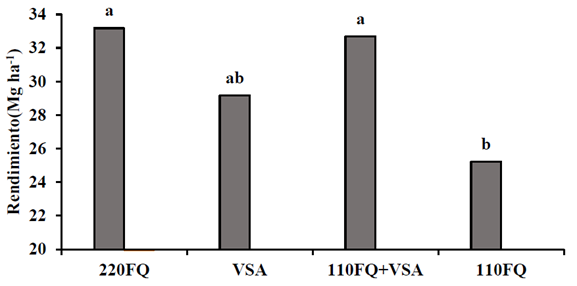Native Bacteria as a Sustainable Alternative for Serrano Pepper Yield
DOI:
https://doi.org/10.28940/terralatinoamericana.v43i.2156Keywords:
Biofertilizers, capsaicin, fitohormonesAbstract
The chili fruit (Capsicum annuum L.) is widely consumed for its rich nutrient content and health benefits, making it an essential component of a healthy diet. Despite these benefits, conventional production systems can cause ecological issues, including greenhouse gas emissions and increased soil salinity. This highlights the need for sustainable farming practices. This research evaluated the impact of bioinoculation with native strains of Bacillus velezensis, Bacillus subtilis, and Azospirillum brasilensis, on the yield and bioactive compound content of serrano chili fruits in the Comarca Lagunera. Bioinoculation with native strains, combined with a 50% reduction in chemical fertilization, produced similar results to those obtained with full chemical fertilization in terms of fruit weight with 6.07 g and 6.15 g respectively, in terms of yield 33 Mg ha-1 and 32 Mg ha-1, amount of phenols 6.27 mg AG 100 g-1 BF and 6.56 mg AG 100 g-1, vitamin C 0.82 mg g-1 BF and 1.10 mg g-1 BF while for capsaicin 269.25 µg g-1 of BS and 274.75 µg g-1 of BS in the same order. The results demonstrate that this methodology can be a sustainable alternative, allowing for a decrease in chemical fertilizer use while promoting soil health through the bioinoculation of native bacteria, which are ef fective when adapted to abiotic stress factors.
Downloads
Publication Facts
Reviewer profiles N/A
Author statements
- Academic society
- Terra Latinoamericana
- Publisher
- Mexican Society of Soil Science, C.A.

















